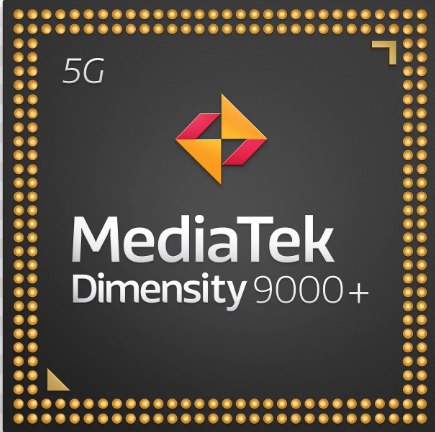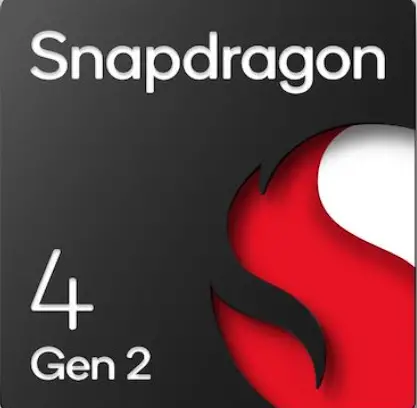Mediatek Dimensity 9000 Plus vs Qualcomm Snapdragon 4 Gen 2
We’ve analyzed the newly launched
Dimensity 9000 Plus and Snapdragon 4 Gen 2
SoCs, created by
Mediatek and Qualcomm respectively.
This comparison highlights the key differences and
similarities between these
8-core
processors, evaluated
through Geekbench, Antutu,
and 3DMark benchmarks, and
other technical details.
Review
General comparison of performance, power consumption,
and other
indicators
CPU Performance
Evaluation of Single-Core and
Multi-Core Processor Performance
Gaming Performance
Gaming and OpenCL/Vulkan
Performance of the Graphics Processing Unit (GPU)
Battery life
Energy Efficiency in Battery Usage
Tech Insist Score
Overall Performance Rating of the
Chip
Key Differences
Main differences and advantages of each chip
Pros of Dimensity 9000 Plus
Benchmarks
Evaluating performance through competitive testing in
leading benchmarks.
AnTuTu 10
The AnTuTu Benchmark evaluates CPU, GPU, RAM, and I/O
capabilities across various scenarios.
CPU
291317
131871
GPU
430867
163570
Memory
218270
114048
UX
206140
94884
Total score
1146594
504373
GeekBench 6
The GeekBench test shows raw single-threaded and
multithreaded CPU
performance
3DMark
A cross-platform benchmark that assesses graphics
performance in Vulkan
(Metal)
3DMark Wild Life Performance
Stability
86%
-
Graphics test
51 FPS
-
Score
8685
-
Specifications
Full list of technical specifications of Dimensity 9000 Plus and Dimensity
9300
Architecture
1x 3.2 GHz – Cortex-X2
2x 2.2 GHz – Cortex-A78
Cores
8
8
Base Frequency
1800MHz
2000MHz
Turbo Frequency
3200MHz
2200MHz
Instruction set
ARMv9-A
ARMv8.2-A
L2 cache
1024 KB
-
L2 cache
3.5 MB
-
L3 cache
8 MB
-
Process
4 nanometers
4 nanometers
Transistor count
-
-
TDP (Sustained Power Limit)
4 W
-
GPU name
Mali-G710 MC10
Adreno 613
Architecture
Valhall 3
Adreno 600
GPU frequency
-
955 MHz
Pipelines
10
-
Shading units
512
-
Total shaders
1024
-
FLOPS
-
-
Vulkan version
1.1
1.1
OpenCL version
2
2.0
DirectX version
12
12
Neural processor (NPU)
Yes
Yes
Memory type
LPDDR5x
LPDDR5
Memory frequency
3750 MHz
3200 MHz
Bus
-
-
Max bandwidth
60 Gbit/s
25.6 Gbit/s
Max size
24 GB
-
Storage type
UFS 3.1
UFS 2.2, UFS 3.1
Max display resolution
2960 x 1440
2520 x 1080
Max camera resolution
1x 320MP, 3x 32MP
1x 108MP, 2x 16MP
Video capture
4K at 60FPS
1K at 60FPS
Video playback
4K at 60FPS
1080p at 60FPS
Video codecs
H.264, H.265, AV1, VP9
H.264, H.265, VP9
Audio codecs
AAC LC, MP3, HE-AACv1, HE-AACv2, FLAC
AAC, AIFF, CAF, MP3, MP4, WAV
Modem
-
Snapdragon X61
4G support
LTE Cat. 24
LTE Cat. 18
5G support
Yes
Yes
Download speed 5G
Up to 7168 Mbps
Up to 2500 Mbps
Download speed 4G
Up to 2560 Mbps
-
Upload speed 5G
Up to 2560 Mbps
Up to 900 Mbps
Upload speed 4G
Up to 316 Mbps
-
Wi-Fi
6
5
Bluetooth
5.3
5.1
Navigation
GPS, GLONASS, Beidou, Galileo, QZSS, SBAS, NAVIC
GPS, GLONASS, Beidou, Galileo, QZSS, NAVIC

